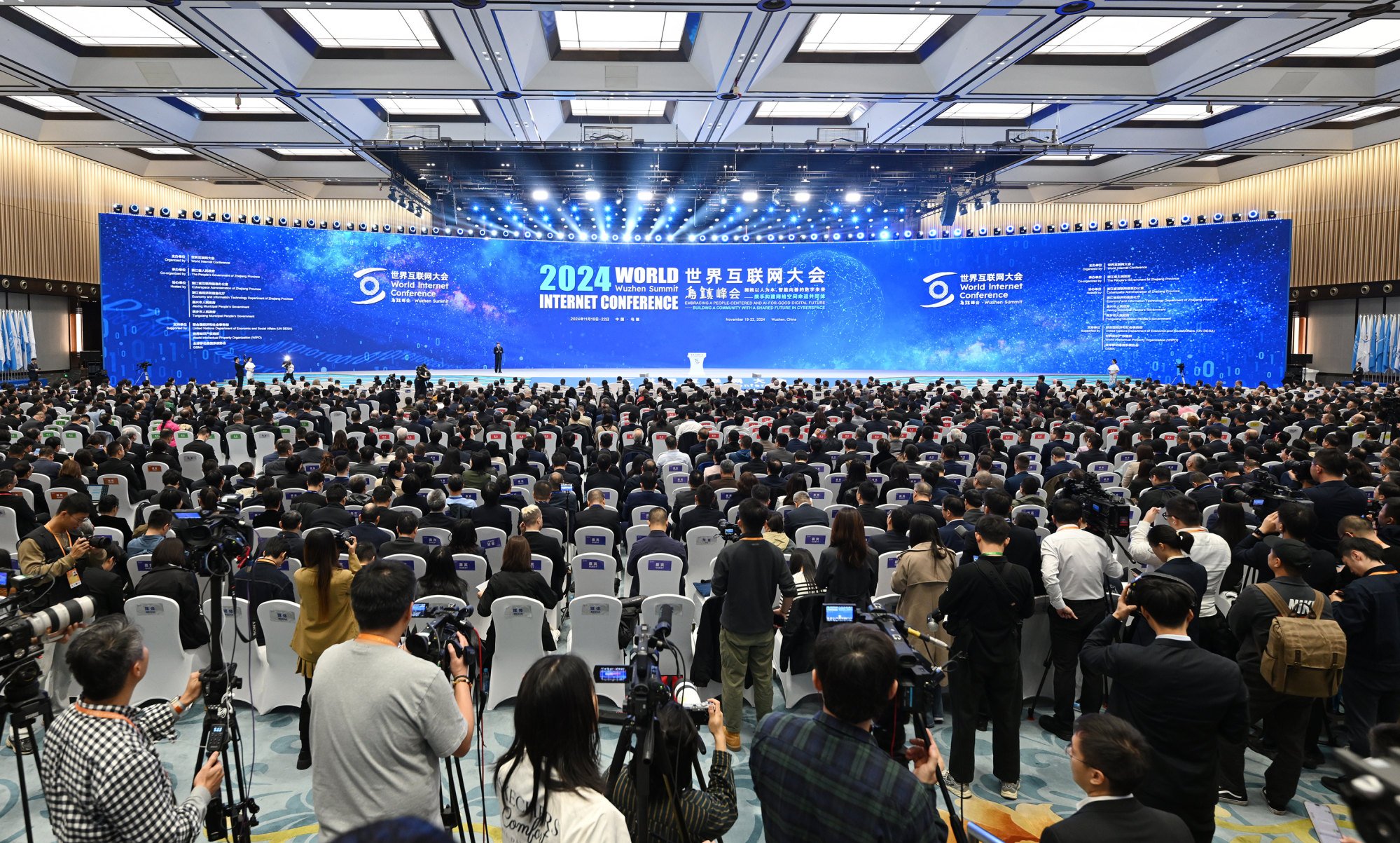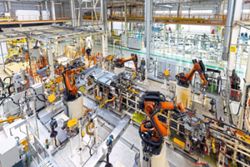
Alibaba Group Holding is advancing artificial intelligence (AI) technology in China to unleash productivity across various industries, chief executive Eddie Wu Yongming said on Wednesday at the country’s annual internet conference.
The e-commerce giant is committed to laying the infrastructural groundwork and supporting systems for AI development in the country, Wu told attendees at the World Internet Conference hosted by the Cyberspace Administration of China in the canal town of Wuzhen in eastern Zhejiang province.
“In the next three decades, AI will comprehensively enhance productivity across the globe,” he said, according to a statement from Alibaba, owner of the South China Morning Post.
Do you have questions about the biggest topics and trends from around the world? Get the answers with SCMP Knowledge, our new platform of curated content with explainers, FAQs, analyses and infographics brought to you by our award-winning team.
“Artificial intelligence is gradually permeating various industries to drive a series of productivity revolutions,” Wu said, adding that the firm already offers open-source versions of its AI models for use by partners in traditional industries.

The agenda at this year’s Wuzhen summit focuses heavily on artificial intelligence. It features panels on topics such as “responsible AI development and applications”, “AI innovation and governance” and “AI empowering new productive forces”. According to the published schedule, the conference will set up a special AI expert committee.
Shoring up AI development in China has become especially urgent, as the US is trying to prevent its geopolitical rival from catching up in the field by restricting its access to advanced semiconductors.
Along with other Chinese internet giants, Hangzhou-based Alibaba has been investing heavily in artificial intelligence. With improvement in infrastructure, the costs for using its proprietary Tongyi Qianwen AI models through application programming interfaces has lowered by 97 per cent in the past year, the company said.
Wu told the forum that more than 78,000 derivative models have been developed based on the company’s Qwen family, putting it on a par with Llama, a family of open-source models from Facebook’s parent Meta Platforms, in terms of number of derivatives, according to Chinese media reports.
Alibaba hopes to foster a vibrant AI ecosystem and significantly lower the barrier for various industries to develop and use artificial intelligence, while promoting the technology’s application in different business scenarios, said Wu.
He added that Alibaba’s AI technology is also used in the academic field. More than 50 Chinese tertiary institutions have started leveraging Alibaba’s cloud computing and AI services in scientific research, in areas including biology and agriculture.
“Just like how affordable electricity paved the way to the ‘Age of Electricity’, cheap-enough computing power will eventually usher in the ‘Age of Intelligence’”, Wu said.
More from South China Morning Post:
- Alibaba sellers are getting a sweeter deal this Singles’ Day as new policies bear fruit
- China’s Huawei pushes network gear upgrades in friendly nations, touting AI boost
- Alibaba’s quarterly profit surges 58% on strong cloud, offshore e-commerce growth
- Alibaba Cloud notches big with ‘China’s Instagram’ completing largest data migration
For the latest news from the South China Morning Post download our mobile app. Copyright 2024.








































